Here are my favorite poems about melancholy categorized:
- Short poems about melancholy
- Poems about melancholy by famous poets
- Rhyming poems about melancholy
So if you want the best poems about melancholy, then you’re in the right place.
Let’s jump right in!
- 73 Wistful Poems About Longing
- 117 Crushing Poems About Disappointment
- 105 Dark Lonely Poems
- 49 Stinging Poems About Missing Someone
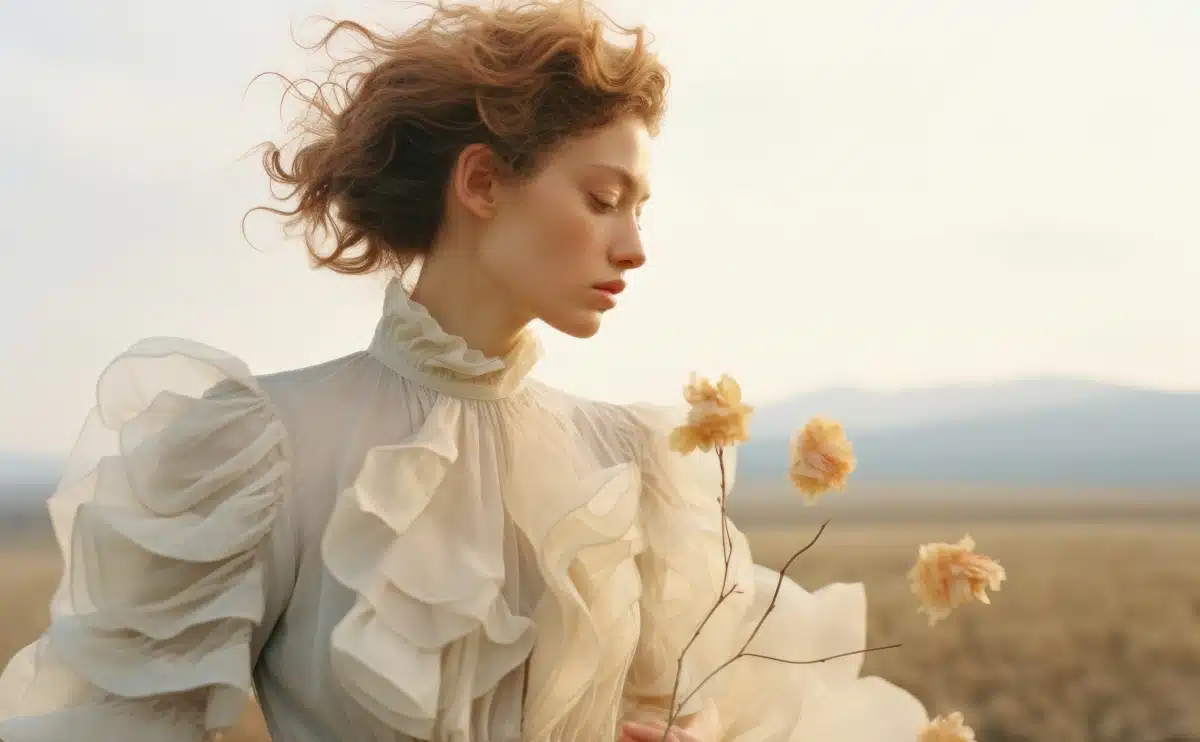
Pensive Poems About Melancholy

Let us delve into the realm of melancholic poetry, where we navigate the intricate maze of human emotions and sadness finds its deepest and most eloquent expression.
In this compilation of melancholic poems, the beauty of words is interwoven with threads of sorrow and reflection, offering solace to those who have felt the weight of their sadness and melancholy.
Through the verses penned by our beloved poets, we invite you to explore the depths of your own emotions and find comfort in this shared experience.
So muster some courage and embark on this contemplative journey as we navigate the landscapes of the human spirit with these cherished poems as our light and guide.
Let’s begin!
My #1 Favorite Poem About Melancholy
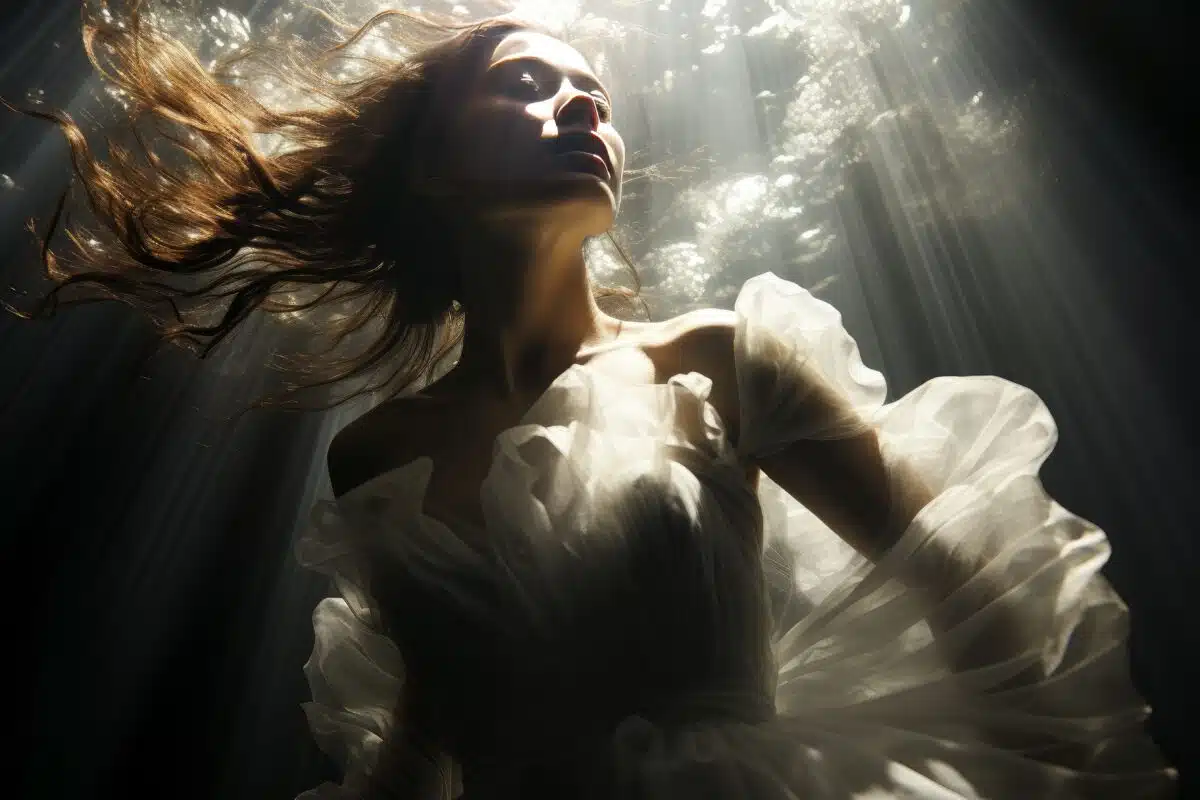
“Rondel” by Charles D’Orléans
Hence away, begone, begone,
Carking care and melancholy!
Think ye thus to govern me
All my life long, as ye have done?
That shall ye not, I promise ye:
Reason shall have the mastery.
So hence away, begone, begone,
Carking care and melancholy!
If ever ye return this way,
With your mournful company,
A curse be on ye, and the day
That brings ye moping back to me!
Hence away, begone, I say,
Carking care and melancholy!
Why “Rondel” Is My Favorite Poem About Melancholy
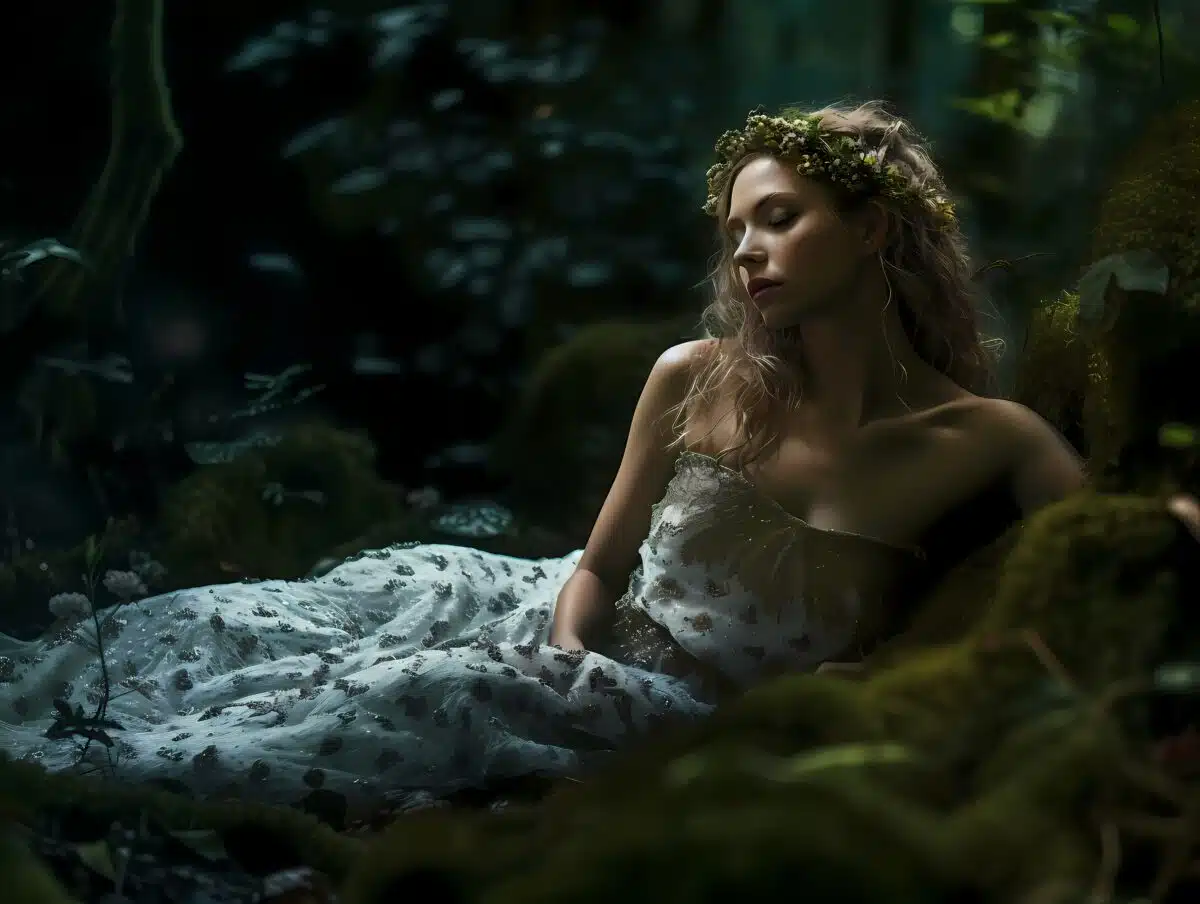
I love how the writer Charles D’Orléans demonstrates his fighting spirit and resilience throughout this short yet empowering piece.
In “Rondel,” the writer depicts a common struggle that many of us experience as we continually fight to overcome life’s countless challenges, both physical and mental.
We always have a choice to either give in or to win.
I too have experienced many mentally taxing situations, but like the author of this poem, by consistently affirming myself and rising above my problems, I know that I can ward off any negative thoughts that would only drag me down.
In this day and age, where depression and other mental health issues seem to burden many people, this poem encourages us to never allow these depressing thoughts to consume our spirit.
We can always seek help because we always have a choice to take ownership of our thoughts, navigate our lives, and therefore emerge as the victor.
Short Poems About Melancholy
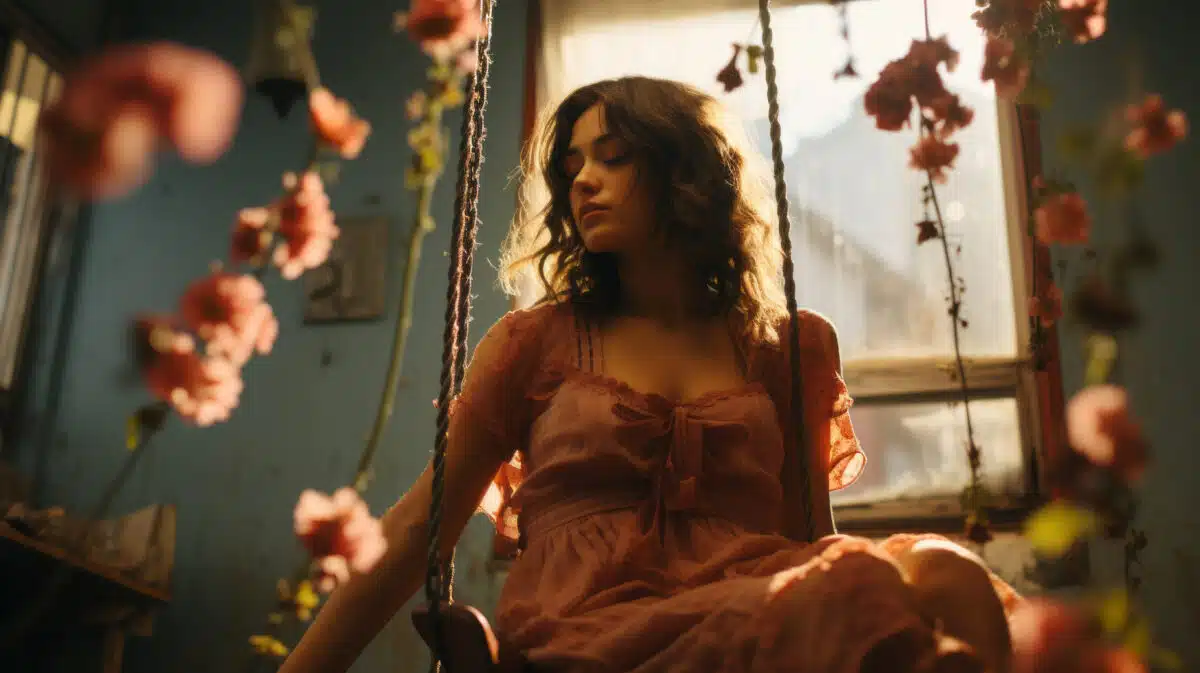
Melancholy is an enigmatic emotion that dwells deep within the recesses of our soul.
This collection of short poems about melancholy will help us explore the depths of introspection and the beauty and strength that arise from sadness.
Let’s dive in!
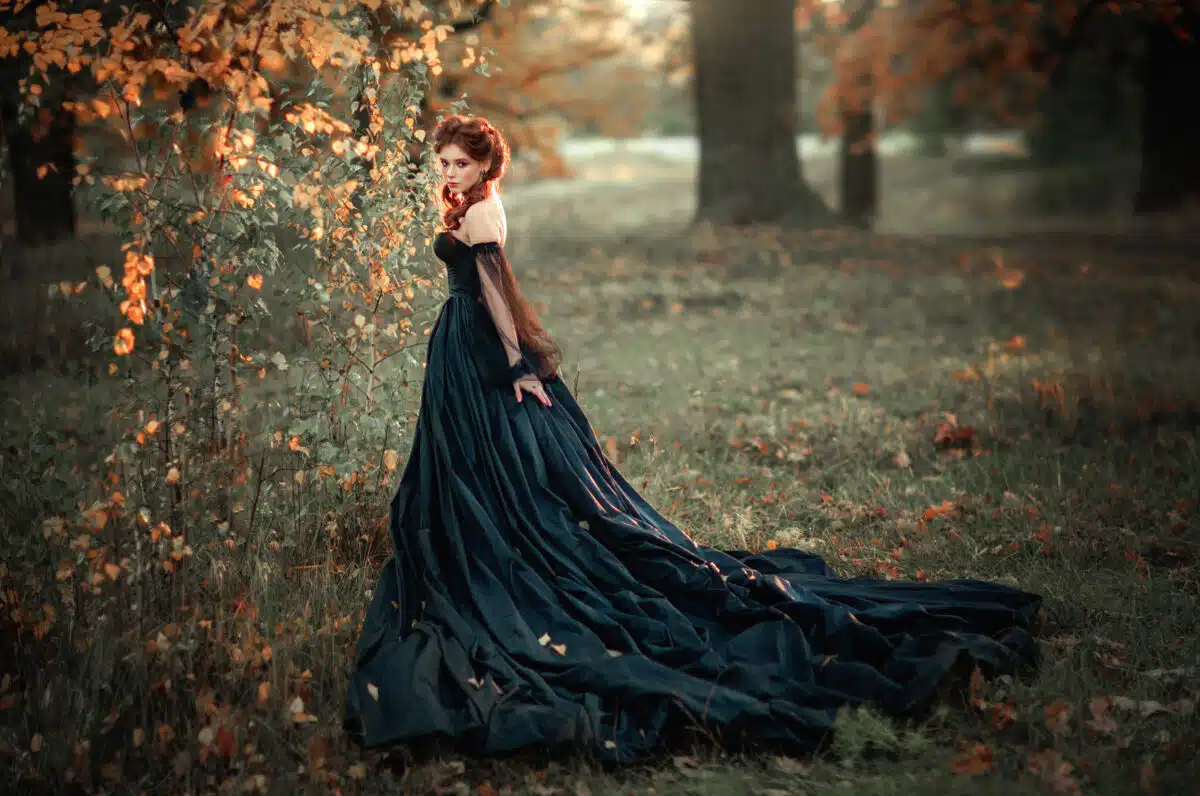
“Melancholy” by Madison Julius Cawein
With shadowy immortelles of memory
About her brow, she sits with eyes that look
Upon the stream of Lethe wearily,
In hesitant hands Death’s partly-opened book.
“Melancholy” by George Parsons Lathrop
Daughter of my nobler hope
That dying gave thee birth,
Sweet Melancholy!
For memory of the dead,
In her dear stead,
‘Bide thou with me,
Sweet Melancholy!
As purple shadows to the tree,
When the last sun-rays sadly slope
Athwart the bare and darkening earth,
Art thou to me,
Sweet Melancholy!
“Ode To Melancholy” by Young lady
Come, Melancholy! charming nymph,
And lead me where some streamlet flows,
Where op’ning buds diffuse their sweets,
And warbling birds breathe out their woes;
Where ringdoves make their soft complaint,
And nightingales, with woe opprest,
Shall tell each passing breeze their grief,
And sooth my aching heart to rest.
There while soft sadness reigns around,
And none to mock my sighs are near,
I’ll muse on all I ever lov’d,
And shed the sadly-pleasing tear.
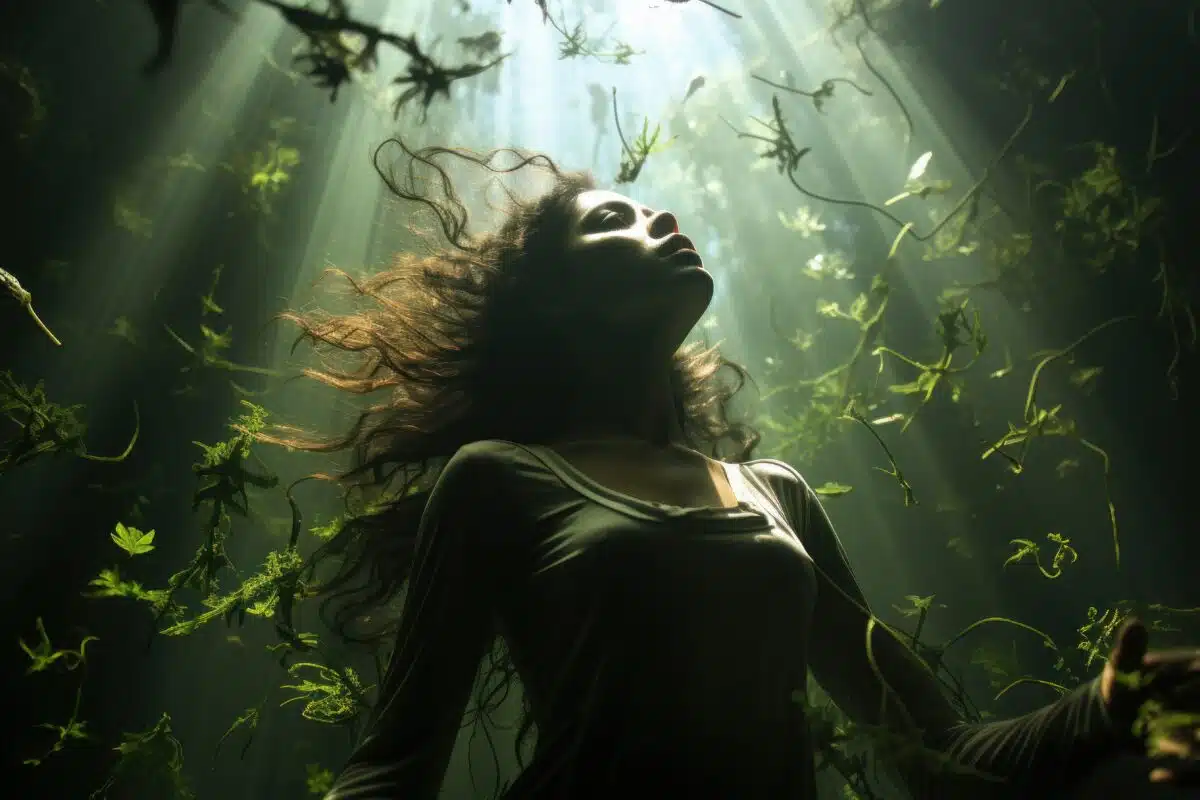
“A Dirge” by Percy Bysshe Shelley
Rough wind, that moanest loud
Grief too sad for song;
Wild wind, when sullen cloud
Knells all the night long;
Sad storm whose tears are vain,
Bare woods, whose branches strain,
Deep caves and dreary main, –
Wail, for the world’s wrong!
“The Precept of Silence” by Lionel Johnson
I know you: solitary griefs,
Desolate passions, aching hours!
I know you: tremulous beliefs,
Agonized hopes, and ashen flowers!
The winds are sometimes sad to me;
The starry spaces full of fear:
Mine is the sorrow on the sea,
And mine the sigh of places drear.
Some players upon plaintive strings
Publish their wistfulness abroad:
I have not spoken of these things,
Save to one man, and unto God.
“Clair De Lune” by Paul Verlaine
Your soul is as a moonlit landscape fair,
Peopled with maskers delicate and dim,
That play on lutes and dance and have an air
Of being sad in their fantastic trim.
The while they celebrate in minor strain
Triumphant love, effective enterprise,
They have an air of knowing all is vain,—
And through the quiet moonlight their songs rise,
The melancholy moonlight, sweet and lone,
That makes to dream the birds upon the tree,
And in their polished basins of white stone
The fountains tall to sob with ecstasy.
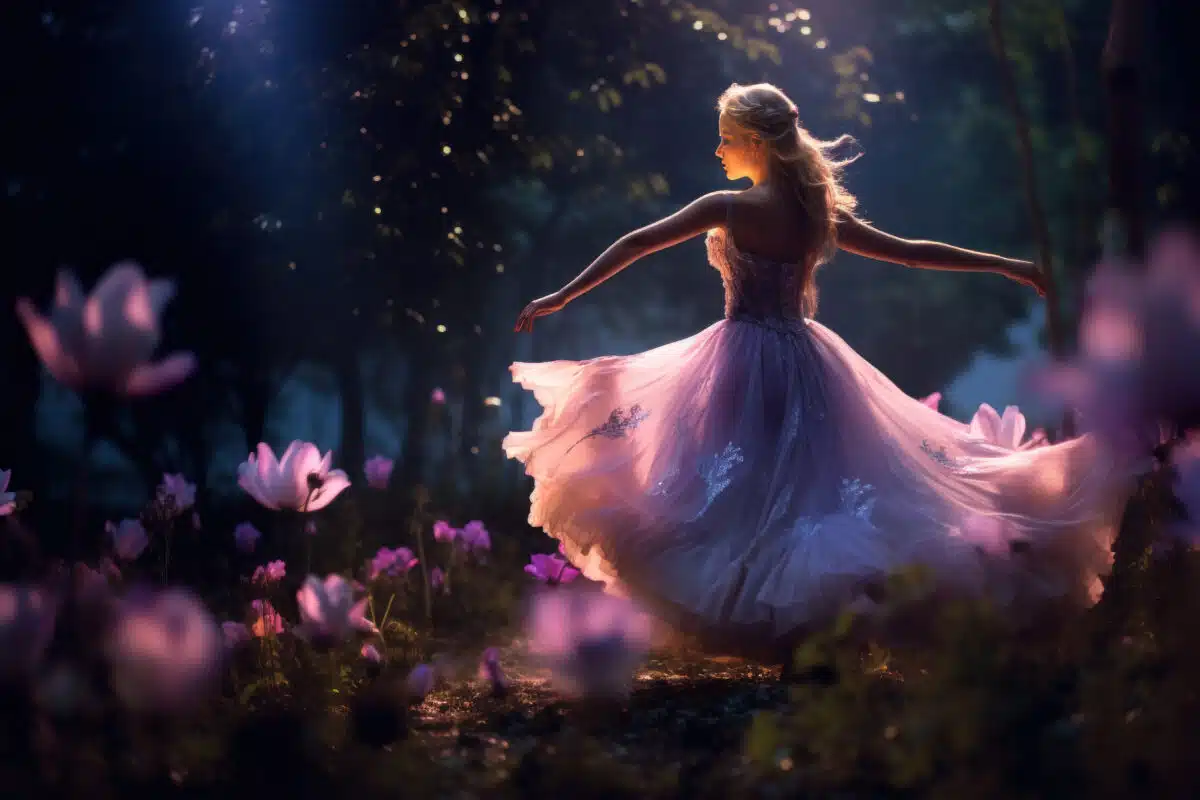
“Sonnet XXXV” by George Santayana
We needs must be divided in the tomb,
For I would die among the hills of Spain,
And o’er the treeless melancholy plain
Await the coming of the final gloom.
But thou—O pitiful!—wilt find scant room
Among thy kindred by the northern main,
And fade into the drifting mist again,
The hemlocks’ shadow, or the pines’ perfume.
Let gallants lie beside their ladies’ dust,
In one cold grave, with mortal love inurned;
Let the sea part our ashes, if it must.
The souls fled thence which love immortal burned,
For they were wedded without bond of lust,
And nothing of our heart to earth returned.
“Gitanjali 20” by Rabindranath Tagore
On the day when the lotus bloomed, alas, my mind was straying, and I knew it not. My basket was empty and the flower remained unheeded.
Only now and again a sadness fell upon me, and I started up from my dream and felt a sweet trace of a strange fragrance in the south wind.
That vague sweetness made my heart ache with longing and it seemed to me that it was the eager breath of the summer seeking for its completion.
I knew not then that it was so near, that it was mine, and that this perfect sweetness had blossomed in the depth of my own heart.
“Sonnets” by Francisco Manoel de Nascimento
Descend, O Joy! descend in brightest guise,
More bright to me the sun, the day more clear,
For thy inspiring looks and radiant eyes.
When heard thy voice,—abashed , in anguish
sad,
Cruel Melancholy quails, —unhallowed
Woe And Grief with doubting step together go,
Their bosoms heaving at thy clarion glad.
Through my tired frame a soft emotion steals,
And in my veins a vital spirit springs,
Chasing the blood, which cold and languid
flowed;
The meadows laugh, and light the air now feels:
For Marcia’s smile, when graciously bestowed,
To me and all around contentment brings.
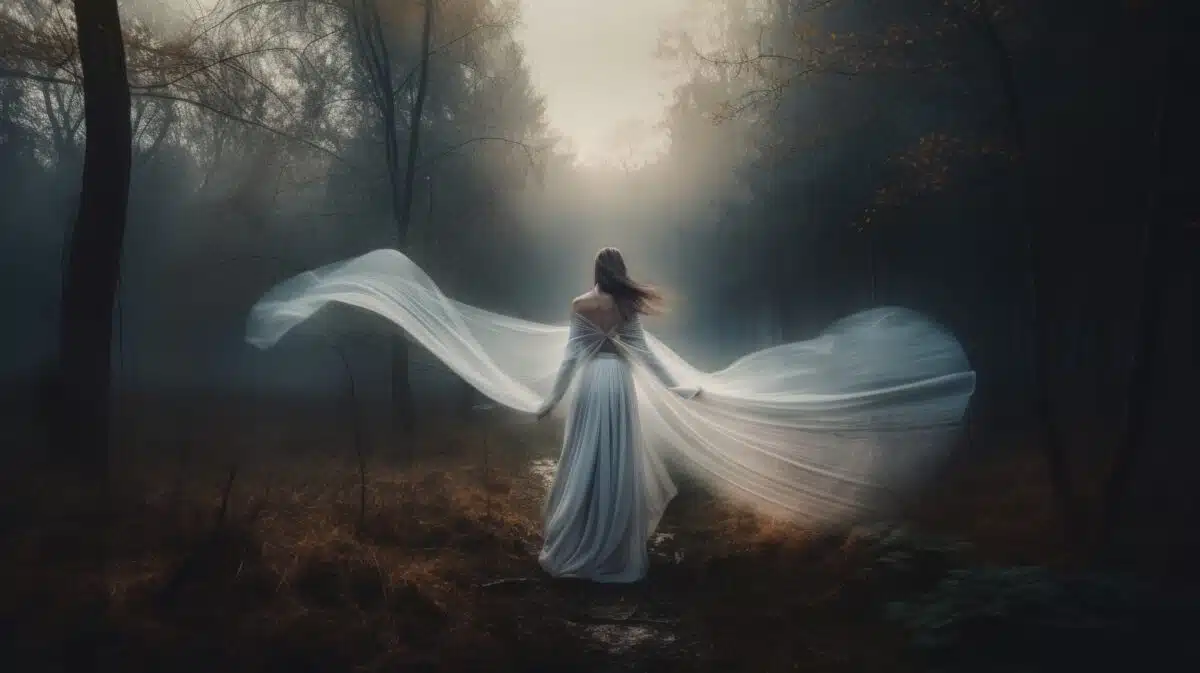
“Midnight” by Thomas Hood
Unfathomable Night! how dost thou sweep
Over the flooded earth, and darkly hide
The mighty city under thy full tide;
Making a silent palace for old Sleep,
Like his old temple under the hush’d deep,
Where all the busy day he doth abide,
And forth at the late dark, outspreadeth wide
His dusky wings, whence the cold waters sweep!
How peacefully the living millions lie!
Lull’d unto death beneath his poppy spells ;
There is no breath-no living stir—no cry——
No tread of foot-no song-no music- call—
Only the sound of melancholy bells—
The voice of Time-survivor of them all!
“Melancholy. A Fragment” by Samuel Taylor Coleridge
Stretch’d on a mouldered Abbey’s broadest wall,
Where ruining ivies propped the ruins steep—
Her folded arms wrapping her tattered pall,
Had Melancholy mus’d herself to sleep.
The fern was press’d beneath her hair,
The dark green adder’s tongue was there ;
And still as past the flagging sea-gale weak,
The long lank leaf bowed fluttering o’er her cheek.
That pallid cheek was flushed: her eager look
Beamed eloquent in slumber! Inly wrought,
Imperfect sounds her moving lips forsook,
And her bent forehead worked with troubled thought.
Strange was the dream—
“Sorrow” by Edna St. Vincent Millay
Sorrow like a ceaseless rain
Beats upon my heart.
People twist and scream in pain,–
Dawn will find them still again;
This has neither wax nor wane,
Neither stop nor start.
People dress and go to town;
I sit in my chair.
All my thoughts are slow and brown:
Standing up or sitting down
Little matters, or what gown
Or what shoes I wear.
Poems About Melancholy by Famous Poets
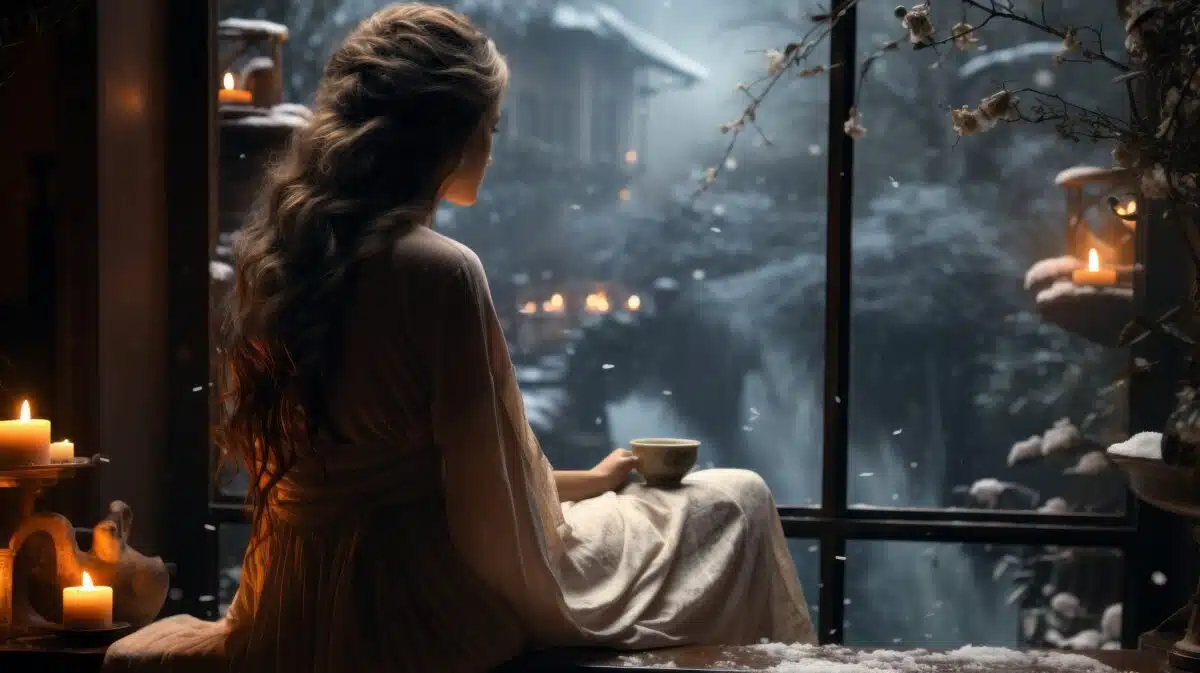
Poems about melancholy have captivated readers for centuries with their poignant exploration of the human condition.
These works, penned by famous poets, delve into the depths of sorrow, evoking a profound sense of introspection and empathy in their readers.
Let’s get straight to it!

“Acquainted With The Night” by Robert Lee Frost
I have been one acquainted with the night.
I have walked out in rain, and back in rain.
I have outwalked the furthest city light.
I have looked down the saddest city lane.
I have passed by the watchman on his beat
And dropped my eyes, unwilling to explain.
I have stood still and stopped the sound of feet
When far away an interrupted cry
Came over houses from another street,
But not to call me back or say good-bye;
And further still at an unearthly height,
O luminary clock against the sky
Proclaimed the time was neither wrong nor right.
I have been one acquainted with the night.
“Melancholia” by Paul Laurence Dunbar
Silently without my window,
Tapping gently at the pane,
Falls the rain.
Through the trees sighs the breeze
Like a soul in pain.
Here alone I sit and weep;
Thought hath banished sleep.
Wearily I sit and listen
To the water’s ceaseless drip.
To my lip
Fate turns up the bitter cup,
Forcing me to sip;
‘Tis a bitter, bitter drink,
Thus I sit and think,—
Thinking things unknown and awful,
Thoughts on wild, uncanny themes,
Waking dreams.
Spectres dark, corpses stark,
Show the gaping seams
Whence the cold and cruel knife
Stole away their life.
Bloodshot eyes all strained and staring,
Gazing ghastly into mine;
Blood like wine
On the brow—clotted now—
Shows death’s dreadful sign.
Lonely vigil still I keep;
Would that I might sleep!
Still, oh, still, my brain is whirling!
Still runs on my stream of thought;
I am caught
In the net fate hath set.
Mind and soul are brought
To destruction’s very brink;
Yet I can but think!
Eyes that look into the future, —
Peeping forth from out my mind,
They will find
Some new weight, soon or late,
On my soul to bind,
Crushing all its courage out,—
Heavier than doubt.
Dawn, the Eastern monarch’s daughter,
Rising from her dewy bed,
Lays her head
‘Gainst the clouds’ sombre shrouds
Now half fringed with red.
O’er the land she ‘gins to peep;
Come, O gentle Sleep!
Hark! the morning cock is crowing;
Dreams, like ghosts, must hie away;
‘Tis the day.
Rosy morn now is born;
Dark thoughts may not stay.
Day my brain from foes will keep;
Now, my soul, I sleep.
“Desolation” by Ella Wheeler Wilcox
I think that the bitterest sorrow or pain
Of love unrequited, or cold death’s woe,
Is sweet, compared to that hour when we know
That some grand passion is on the wane.
When we see that the glory, and glow, and grace
Which lent a splendour to night and day,
Are surely fading, and showing grey
And dull groundwork of the commonplace.
When fond expressions on dull ears fall,
When the hands clasp calmly without one thrill,
When we cannot muster by force of will
The old emotions that came at call.
When the dream has vanished we fain would keep,
When the heart, like a watch, runs out of gear,
And all the savour goes out of the year,
Oh, then is the time — if we could — to weep!
But no tears soften this dull, pale woe;
We must sit and face it with dry, sad eyes.
If we seek to hold it, the swifter joy flies —
We can only be passive, and let it go.
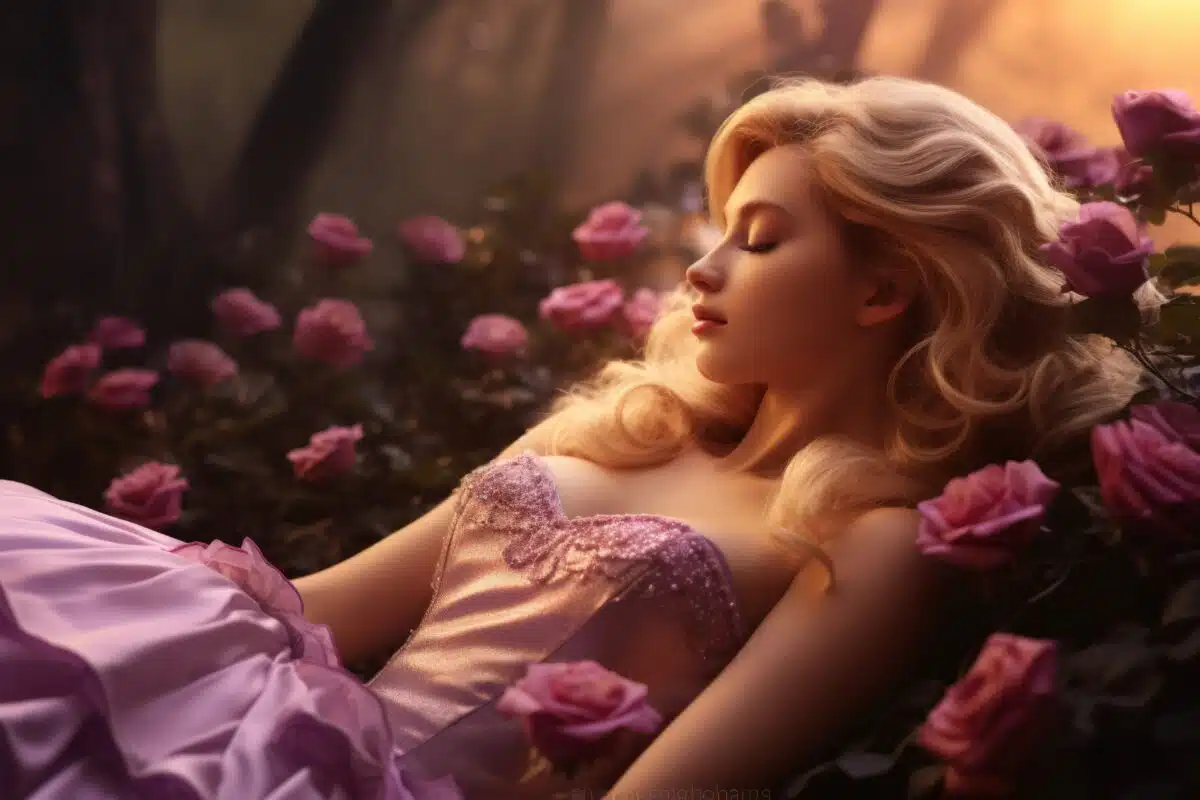
“A Dream Within A Dream” by Edgar Allan Poe
Take this kiss upon the brow!
And, in parting from you now,
Thus much let me avow
You are not wrong, who deem
That my days have been a dream:
Yet if hope has flown away
In a night, or in a day,
In a vision or in none,
Is it therefore the less gone?
All that we see or seem
Is but a dream within a dream.
I stand amid the roar
Of a surf-tormented shore,
And I hold within my hand
Grains of the golden sand
How few! yet how they creep
Through my fingers to the deep
While I weep while I weep!
O God! can I not grasp
Them with a tighter clasp?
O God! can I not save
One from the pitiless wave?
Is all that we see or seem
But a dream within a dream?
“The Saddest Hour” by Ella Wheeler Wilcox
The saddest hour of anguish and of loss
Is not that season of supreme despair
When we can find no least light anywhere
To gild the dread, black shadow of the Cross;
Not in that luxury of sorrow when
We sup on salt of tears, and drink the gall
Of memories of days beyond recall –
Of lost delights that cannot come again.
But when, with eyes that are no longer wet,
We look out on the great, wide world of men,
And, smiling, lean toward a bright to-morrow,
Then backward shrink, with sudden keen regret,
To find that we are learning to forget:
Ah! then we face the saddest hour of sorrow.
“The Sadness Of The Moon” by Charles Baudelaire
The Moon more indolently dreams to-night
Than a fair woman on her couch at rest,
Caressing, with a hand distraught and light,
Before she sleeps, the contour of her breast.
Upon her silken avalanche of down,
Dying she breathes a long and swooning sigh;
And watches the white visions past her flown,
Which rise like blossoms to the azure sky.
And when, at times, wrapped in her languor deep,
Earthward she lets a furtive tear-drop flow,
Some pious poet, enemy of sleep,
Takes in his hollow hand the tear of snow
Whence gleams of iris and of opal start,
And hides it from the Sun, deep in his heart.
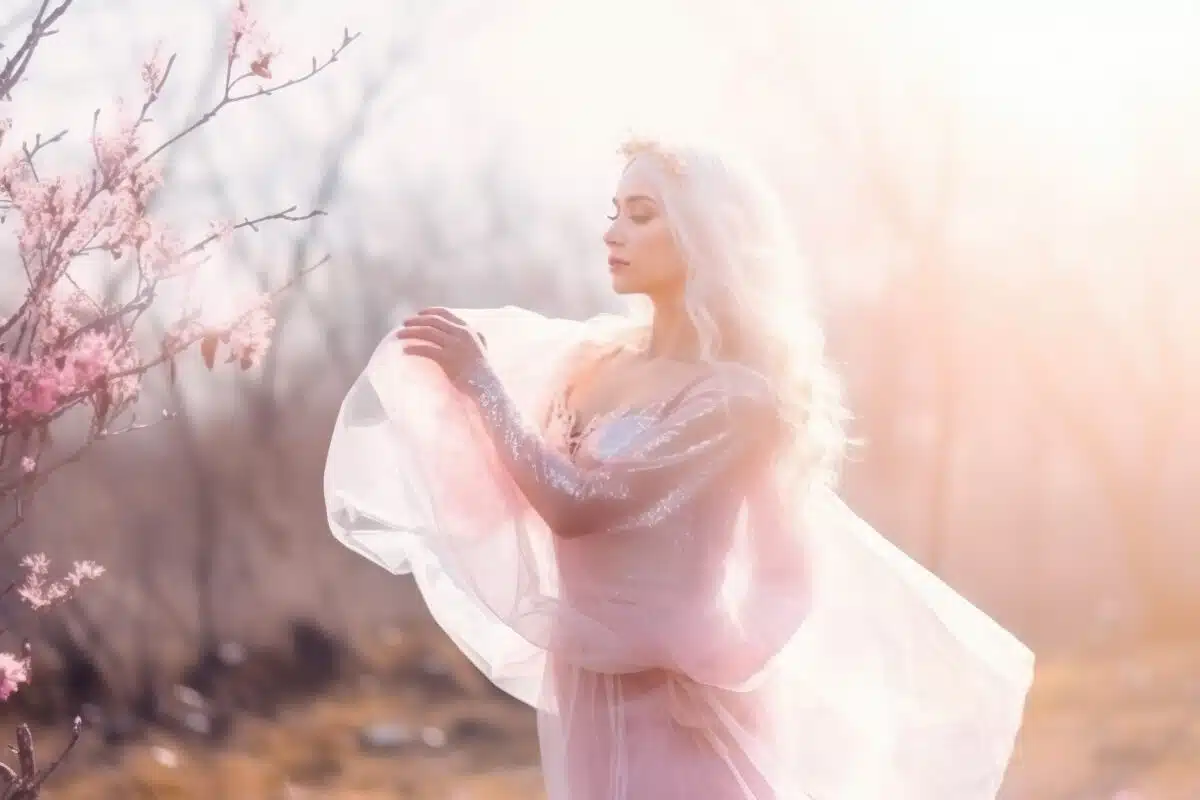
“Ode On Melancholy” by John Keats
No, no, go not to Lethe, neither twist
Wolf’s-bane, tight-rooted, for its poisonous wine;
Nor suffer thy pale forehead to be kiss’d
By nightshade, ruby grape of Proserpine;
Make not your rosary of yew-berries,
Nor let the beetle, nor the death-moth be
Your mournful Psyche, nor the downy owl
A partner in your sorrow’s mysteries;
For shade to shade will come too drowsily,
And drown the wakeful anguish of the soul.
But when the melancholy fit shall fall
Sudden from heaven like a weeping cloud,
That fosters the droop-headed flowers all,
And hides the green hill in an April shroud;
Then glut thy sorrow on a morning rose,
Or on the rainbow of the salt sand-wave,
Or on the wealth of globed peonies;
Or if thy mistress some rich anger shows,
Emprison her soft hand, and let her rave,
And feed deep, deep upon her peerless eyes.
She dwells with Beauty—Beauty that must die;
And Joy, whose hand is ever at his lips
Bidding adieu; and aching Pleasure nigh,
Turning to poison while the bee-mouth sips:
Ay, in the very temple of Delight
Veil’d Melancholy has her sovran shrine,
Though seen of none save him whose strenuous tongue
Can burst Joy’s grape against his palate fine;
His soul shalt taste the sadness of her might,
And be among her cloudy trophies hung.
“Break, Break, Break” by Alfred Lord Tennyson
Break, break, break,
On thy cold gray stones, O Sea!
And I would that my tongue could utter
The thoughts that arise in me.
O, well for the fisherman’s boy,
That he shouts with his sister at play!
O, well for the sailor lad,
That he sings in his boat on the bay!
And the stately ships go on
To their haven under the hill;
But O for the touch of a vanished hand,
And the sound of a voice that is still!
Break, break, break,
At the foot of thy crags, O Sea!
But the tender grace of a day that is dead
Will never come back to me.
“Sonnet: Written In Disgust Of Vulgar Superstition” by John Keats
The church bells toll a melancholy round,
Calling the people to some other prayers,
Some other gloominess, more dreadful cares,
More hearkening to the sermon’s horrid sound.
Surely the mind of man is closely bound
In some black spell; seeing that each one tears
Himself from fireside joys, and Lydian airs,
And converse high of those with glory crown’d.
Still, still they toll, and I should feel a damp,
A chill as from a tomb, did I not know
That they are dying like an outburnt lamp;
That ’tis their sighing, wailing ere they go
Into oblivion; that fresh flowers will grow,
And many glories of immortal stamp.

From “Ode To Melancholy” by Thomas Hood
Come, let us set our careful breasts,
Like Philomel, against the thorn,
To aggravate the inward grief,
That makes her accents so forlorn;
The world has many cruel points,
Whereby our bosoms have been torn,
And there are dainty themes of grief,
In sadness to outlast the morn,
True honour’s dearth, affection’s death,
Neglectful pride, and cankering scorn,
With all the piteous tales that tears
Have water’d since the world was born.
The world!—it is a wilderness,
Where tears are hung on every tree;
For thus my gloomy phantasy
Makes all things weep with me!
Come let us sit and watch the sky,
And fancy clouds, where no clouds be;
Grief is enough to blot the eye,
And make heaven black with misery.
Why should birds sing such merry notes,
Unless they were more blest than we?
No sorrow ever chokes their throats,
Except sweet nightingale; for she
Was born to pain our hearts the more
With her sad melody.
Why shines the Sun, except that he
Makes gloomy nooks for Grief to hide,
And pensive shades for Melancholy,
When all the earth is bright beside?
Let clay wear smiles, and green grass wave,
Mirth shall not win us back again,
Whilst man is made of his own grave,
And fairest clouds but gilded rain!
“The Rainy Day” by Henry Wadsworth Longfellow
The day is cold, and dark, and dreary;
It rains, and the wind is never weary;
The vine still clings to the moldering wall ,
But at every gust the dead leaves fall ,
And the day is dark and dreary.
My life is cold, and dark, and dreary;
It rains, and the wind is never weary;
My thoughts still cling to the moldering Past,
But the hopes of youth fall thick in the blast
And the days are dark and dreary.
Be still , sad heart! and cease repining ;
Behind the clouds is the sun still shining;
Thy fate is the common fate of all,
Into each life some rain must fall,
Some days must be dark and dreary.
From “The Nice Valor” by John Fletcher
Hence, all you vain delights,
As short as are the nights,
Wherein you spend your folly:
There’s naught in this life sweet
If man were wise to see’t,
But only melancholy,
O sweetest Melancholy!
Welcome, folded arms, and fixèd eyes,
A sigh that piercing mortifies ,
Alook that’s fastened to the ground,
Atongue chained up without a sound!
Fountain-heads and pathless groves,
Places which pale passion loves !
Moonlight walks, when all the fowls
Are warmly housed save bats and owls!
Amidnight bell, a parting groan!
These are the sounds we feed upon;
Then stretch our bones in a still gloomy valley;
Nothing’s so dainty sweet as lovely melancholy.

“The Day Is Done” by Henry Wadsworth Longfellow
The day is done, and the darkness
Falls from the wings of Night,
As a feather is wafted downward
From an eagle in his flight.
I see the lights of the village
Gleam through the rain and the mist,
And a feeling of sadness comes o’er me
That my soul cannot resist:
A feeling of sadness and longing,
That is not akin to pain,
And resembles sorrow only
As the mist resembles the rain.
Come, read to me some poem,
Some simple and heartfelt lay,
That shall soothe this restless feeling,
And banish the thoughts of day.
Not from the grand old masters,
Not from the bards sublime,
Whose distant footsteps echo
Through the corridors of Time.
For, like strains of martial music,
Their mighty thoughts suggest
Life’s endless toil and endeavor;
And to-night I long for rest .
Read from some humbler poet,
Whose songs gushed from his heart,
As showers from the clouds of summer,
Or tears from the eyelids start ;
Who, through long days of labor,
And nights devoid of ease,
Still heard in his soul the music
Of wonderful melodies
Such songs have power to quiet
The restless pulse of care,
And come like the benediction
That follows after prayer.
Then read from the treasured volume
The poem of thy choice,
And lend to the rhyme of the poet
The beauty of thy voice.
And the night shall be filled with music,
And the cares, that infest the day,
Shall fold their tents, like the Arabs,
And as silently steal away.
From “Fears In Solitude” by Samuel Taylor Coleridge
My God! it is a melancholy thing
For such a man, who would full fain preserve
His soul in calmness, yet perforce must feel
For all his human brethren—O my God!
It weighs upon the heart, that he must think
What uproar and what strife may now be stirring
This way or that way o’er these silent hills—
Invasion, and the thunder and the shout,
And all the crash of onset; fear and rage,
And undetermined conflict—even now,
Even now, perchance, and in his native isle:
Carnage and groans beneath this blessed sun!
We have offended, Oh! my countrymen!
We have offended very grievously,
And been most tyrannous. From east to west
A groan of accusation pierces Heaven!
“Sonnets” by Francesco Petrarca
Poor, solitary bird , that pour’st thy lay,
Or haply mournest the sweet season gone,
As chilly night and winter hurry on,
And daylight fades, and summer flies away!
If, as the cares that swell thy little throat,
Thou knew’st alike the woes that wound my rest,
O, thou wouldst house thee in this kindred breast,
And mix with mine thy melancholy note!
Yet little know I ours are kindred ills:
She still may live the object of thy song:
Not so for me stern Death or Heaven wills!
But the sad season, and less grateful hour,
And of past joy and sorrow thoughts that throng,
Prompt my full heart this idle lay to pour.

From “Adonais” by John Keats
Oh, weep for Adonais-he is dead!
Wake, melancholy Mother, wake and weep!
Yet wherefore? Quench within their burning bed
Thy fiery tears, and let thy loud heart keep
Like his, a mute and uncomplaining sleep;
For he is gone where all things wise and fair
Descend. Oh, dream not that the amorous Deep
Will yet restore him to the vital air;
Death feeds on his mute voice, and laughs at our despair.
“Parting” by Anne Beale
“Farewell! farewell!” this melancholy word
Falls sadly on the strained and tortured ear,
As the last death-knell on the uncovered grave
Too oft repeated, and too soon forgot.
But vain are tears-they fall like autumn rain
On summer’s withered flowers, and sap the heart,
To make it feel dull, cold, and desolate.
Each parting seems a little death, and rends
Link after link of friendship’s yielding chain.
Alas ! so many of its links are rent,
That hearts grow callous, and the gushing tears
That dim the eye of youth, may cease to flow,
When Time, sad ravager of love’s domains,
Has dried the source of sweet affection’s spring.
Methinks the pangs of death, by friendship soothed,
Were better than to live in love’s decay.
The flower that withers on the parent stem
Hath sweeter perfume in its death, than that
Culled but to make the marble vase its tomb
Such hath the parting spirit, when it fleets
Heavenward to rest, surrounded by the forms
Of friends whose grief is deep as love hath been.
For, oh ! how mournful must that deathbed be
Unsmoothed by friendship, unbedewed by tears!
Better ten thousand partings here below
Than final loneliness-but better far
Than aught of earth, that Friend invisible,
Whose smile awakes the loneliest heart to joy;
And, like the cheering ray of summer sun
Piercing the cavern’s gloom, invites the soul
To wing its upward flight to perfect day.
From “May-Day Night” by Goethe
Mephistopheles.
Nothing of such an influence do I feel:
My body is all wintry, and I wish
The flowers upon our path were frost and snow.
But see, how melancholy rises now,
Dimly uplifting her belated beam,
The blank unwelcome round of the red moon,
And gives so bad a light, that, every step,
One stumbles ‘ gainst some crag! With your
permission,
I’ll call an Ignis-fatuus to our aid:
I see one yonder burning jollily.
Halloo, my friend! may I request that you
Would favor us with your bright company?
Why should you blaze away there to no purpose?
Pray, be so good as light us up this way.
Rhyming Poems About Melancholy

Rhyming poems about melancholy weave words with poignant grace, painting emotions in verses that embrace.
Through rhythmic cadence and lyrical sway, they delve into the depths where melancholy holds sway.
Let’s go!

“Melancholetta” by Lewis Carroll
With saddest music all day long
She soothed her secret sorrow:
At night she sighed “I fear ’twas wrong
Such cheerful words to borrow.
Dearest, a sweeter, sadder song
I’ll sing to thee to-morrow.”
I thanked her, but I could not say
That I was glad to hear it:
I left the house at break of day,
And did not venture near it
Till time, I hoped, had worn away
Her grief, for nought could cheer it!
My dismal sister! Couldst thou know
The wretched home thou keepest!
Thy brother, drowned in daily woe,
Is thankful when thou sleepest;
For if I laugh, however low,
When thou’rt awake, thou weepest!
I took my sister t’other day
(Excuse the slang expression)
To Sadler’s Wells to see the play
In hopes the new impression
Might in her thoughts, from grave to gay
Effect some slight digression.
I asked three gay young dogs from town
To join us in our folly,
Whose mirth, I thought, might serve to drown
My sister’s melancholy:
The lively Jones, the sportive Brown,
And Robinson the jolly.
The maid announced the meal in tones
That I myself had taught her,
Meant to allay my sister’s moans
Like oil on troubled water:
I rushed to Jones, the lively Jones,
And begged him to escort her.
Vainly he strove, with ready wit,
To joke about the weather,
To ventilate the last ‘on dit’,
To quote the price of leather,
She groaned “Here I and Sorrow sit:
Let us lament together!”
I urged “You’re wasting time, you know:
Delay will spoil the venison.”
“My heart is wasted with my woe!
There is no rest, in Venice, on
The Bridge of Sighs!” she quoted low
From Byron and from Tennyson.
I need not tell of soup and fish
In solemn silence swallowed,
The sobs that ushered in each dish,
And its departure followed,
Nor yet my suicidal wish
To be the cheese I hollowed.
Some desperate attempts were made
To start a conversation;
“Madam,” the sportive Brown essayed,
“Which kind of recreation,
Hunting or fishing, have you made
Your special occupation?”
Her lips curved downwards instantly,
As if of India-rubber.
“Hounds in full cry I like,” said she:
(Oh how I longed to snub her!)
“Of fish, a whale’s the one for me,
It is so full of blubber!”
The night’s performance was “King John.”
“It’s dull,” she wept, “and so-so!”
Awhile I let her tears flow on,
She said they soothed her woe so!
At length the curtain rose upon
‘Bombastes Furioso.’
In vain we roared; in vain we tried
To rouse her into laughter:
Her pensive glances wandered wide
From orchestra to rafter,
“Tier upon tier!” she said, and sighed;
And silence followed after.
“Depression” by Morris Rosenfeld
All the striving, all the failing,
To the silent Nothing sailing.
Swiftly, swiftly passing by!
For the land of shadows leaving,
Where a wistful hand is weaving
Thy still woof, Eternity!
Gloomy thoughts in me awaken,
And with fear my breast is shaken,
Thinking: O thou black abyss;
All the toil and thrift of life,
All the struggle and the strife,
Shall it come at last to this?
With the grave shall be requited
Good and evil, and united
Ne’er to separate again?
What the light hath parted purely,
Shall the darkness join more surely?–
Was the vict’ry won in vain?
O mute and infinite extension,
O time beyond our comprehension,
Shall thought and deed ungarnered fall?
Ev’rything dost take and slay,
Ev’rything dost bear away,
Silent Nothing, silent All!…
“The Saddest Thought” by W. M. MacKeracher
Sad is the wane of beauty to the fair,
Sad is the flux of fortune to the proud,
Sad is the look dejected lovers wear,
And sad is worth beneath detraction’s cloud.
Sad is our youth’s inexorable end,
Sad is the bankruptcy of fancy’s wealth,
Sad is the last departure of a friend,
And sadder than most things is loss of health.
And yet more sad than these to think upon
Is this – the saddest thought beneath the sun –
Life, flowing like a river, almost gone
Into eternity, and nothing done.
Let me be spared that bootless last regret:
Let me work now; I may do something yet.

From “Depression” by Ruby Gardner
What though our soul feels sad
When nothing seems the cause?
What though we “feel depressed,”
And tired of endless pause—
When all things seem to stretch
In dull monotony,
And everything the same
As far as eye can see?
“My Life Is Like the Summer Rose” by Richard Henry Wilde
My life is like the summer rose
That opens to the morning sky,
But, ere the shades of evening close,
Is scattered on the ground–to die!
Yet on the rose’s humble bed
The sweetest dews of night are shed,
As if she wept the waste to see, —
But none shall weep a tear for me!
My life is like the autumn leaf
That trembles in the moon’s pale ray;
Its hold is frail, -its date is brief,
Restless, and soon to pass away!
Yet, ere that leaf shall fall and fade,
The parent tree will mourn its shade,
The winds bewail the leafless tree,
But none shall breathe a sigh for me!
My life is like the prints, which feet
Have left on Tampa’s desert strand;
Soon as the rising tide shall beat,
All trace will vanish from the sand;
Yet, as if grieving to efface
All vestige of the human race,
On that lone shore loud moans the sea,
But none, alas! shall mourn for me!
“Spirit of Sadness” by Richard Le Gallienne
She loved the Autumn, I the Spring,
Sad all the songs she loved to sing;
And in her face was strangely set
Some great inherited regret.
Some look in all things made her sigh,
Yea! sad to her the morning sky:
“So sad! so sad its beauty seems”
I hear her say it still in dreams.
But when the day grew gray and old,
And rising stars shone strange and cold,
Then only in her face I saw
A mystic glee, a joyous awe.
Spirit of Sadness, in the spheres
Is there an end of mortal tears?
Or is there still in those great eyes
That look of lonely hills and skies?
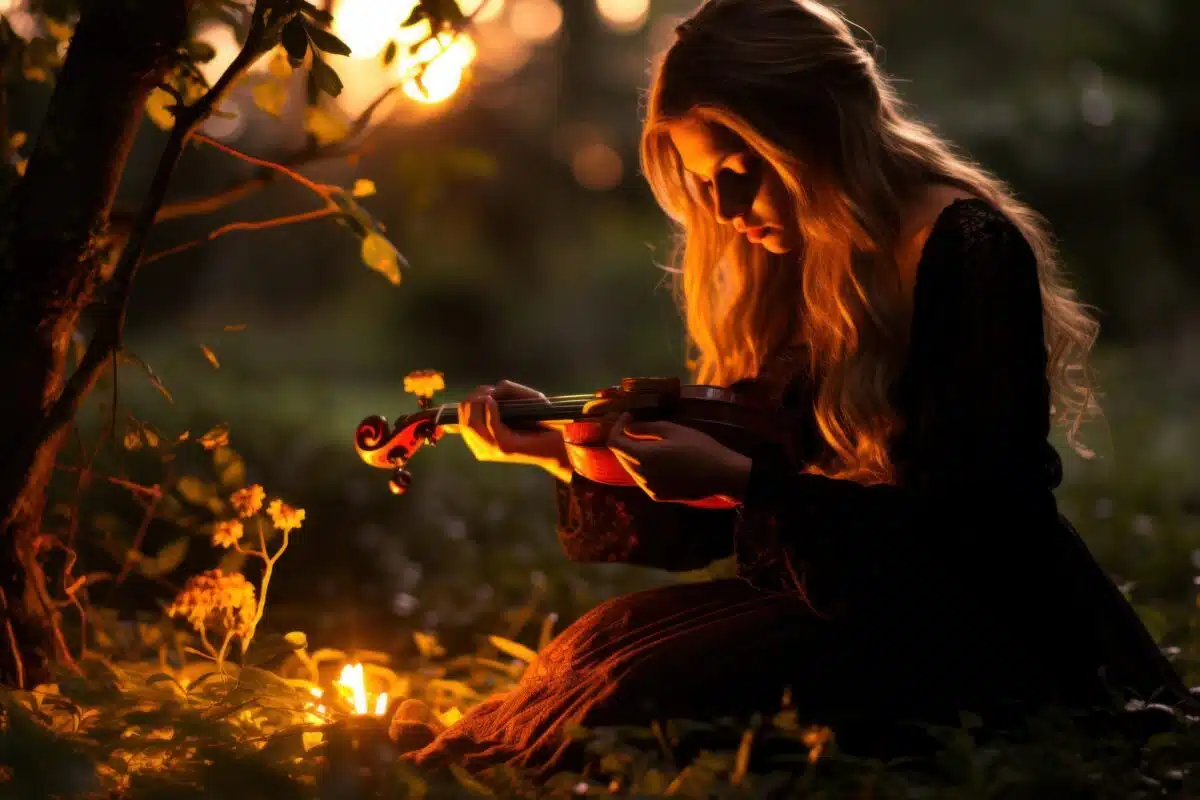
“Melancholy” by James Currie
Oh! why this gloomy sadness,
This melancholy madness,
When all around is gladness,
And fair to others’ view?
Now I hear the reapers’ song
On the zephyrs borne along;
Ah! they seem a happy throng
Their cares and sorrows few.
Yonder lark, now high in space,
King of all the songster race,
Oft its course I lov’d to trace,
Ere sorrow pierced my breast,
When it warbled on the wing,
Making all around to ring;
Now, alas! each note’s a sting,
To a heart with grief opprest.
Oh why this morbid feeling,
A mind diseased, revealing?
Is there no hope of healing,
No source whence joy can come?
Yes! methought I heard a voice
Sighing forth-” Make this your
Look heavenward and rejoice
The Christian’s future home;
“There are pleasures there in store,
Shall be granted evermore,
If you ask but Him who bore
Griefs greater once than thine.”
I knelt and breath’d a prayer,
Laying all my sorrows bare.
To God, who’s everywhere.
Now joy in heart is mine!
“Sit Down, Sad Soul” by Bryan Waller Procter
Sit down, sad soul, and count
The moments flying;
Come-tell the sweet amount
That’s lost by sighing!
How many smiles ?—a score?
Then laugh and count no more;
For day is dying!
Lie down, sad soul, and sleep,
And no more measure
The flight of time, nor weep
The loss of leisure;
But here, by this lone stream,
Lie down with us, and dream
Of starry treasure!
We dream; do thou the same;
We love for ever;
We laugh, yet few we shame—
The gentle, never.
Stay, then, till sorrow dies;
Then-hope and happy skies
Are thine for ever!
From “The Soul’s Arrival in Paris” by Vincenzo Monti
Hushed is the sacred chime of bells, and hushed
The works of day, -hushed every various sound
Of creaking saw, of metal hammer-crushed.
There fears and whisperings alone are found,
Questionings, looks mistrustful , discontent,
Dark melancholy that the heart must wound,
Deep accents of affections strangely blent:
Accents of mothers, who, foreboding ill,
Clasp to their bosoms each loved innocent;
Accents ofwives, who, even on the door’s sill,
Strive their impetuous husbands to detain;
With tears and fond entreaties urging still.

“Melancholy” by Henry Rootes Jackson
Hail, spirit, wandering by
On shadowy pinions, whispering soft and low!
Like Summer winds that blow
And scatter fragrance through the burning sky,
I knew them as they stole,
In mystic bloom and music, o’er my soul!
With solemn pace and slow
I seek the shadows of the silent grove;
I hail thee as I rove
Beside the streamlet’s sad complaining flow,
To touch with grief my string,
And feed with poet-tears my sorrowing!
Amid the solitude
How gayly, hark! the new-fledged zephyrs shout; —
And lo! the stars are out,
And weave a dream of lustre in the wood;
And flowers, by eve carest,
Are nursing infant odors on their breast.
Alas! too bright the Spring!
Her tresses strung with liquid pearl, too fair
Her winged zephyrs bear
Too sweet an incense from her blossoming;
Ah me! too soft a lay
Her warblers sing at dawn and close of day!
Since now for me no more,
Ye rosy hours, the bloom of life ye bring;
But still each coming Spring
Renews the dream of hopes for ever o’er!
Life warms around my head,
My heart is lonely with the cold and dead!
From “The Philosophy of Melancholy” by Thomas Love Peacock
Why loves the muse the melancholy lay?
Whyjoys the bard, in autumn’s closing day,
To watch the yellow leaves, that round him sail ,
And hear a spirit moan in every gale?
To seek, beneath the moon, at midnight hour,
The ivied abbey, and the mouldering tower,
And, while the wakening echoes hail his tread,
In fancy hold communion with the dead?
Ah ! rather yet, while youth’s warm sunshine glows,
Crown the full bowl, and crop the breathing rose,
In dance and song the rapid hours employ,
Nor lose one smile of life’s too transient joy!
Can the fond hours, in morning revels past,
Teach the light heart to meet the evening blast?
When sudden clouds the changeful day deform,
The gay ephemeron dies beneath the storm:
The sheltered bee, long provident of change,
Furls his soft wings, nor dreads the whirlwind’s range.
Oh melancholy! blue-eyed maid divine!
Thy fading woods, thy twilight walks, be mine.
No sudden change thy pensive votaries feel:
They mark the whirl of fortune’s restless wheel,
Taught by the past the coming hour to scan,
No wealth, no glory, permanent to man.
Not thine, blest power ! the misanthropic gloom,
That gave its living victims to the tomb,
Forced weeping youth to bid the world farewell,
And hold sad vigils in the cloistered cell.
Thy lessons train the comprehensive mind,
The sentient heart, that glows for all mankind,
The intrepid hand, the unsubdued resolve,
Whence wisdom, glory, liberty , devolve.
“L’amour Par Terre” by Paul Verlaine
The wind the other night blew down the Love
That in the dimmest corner of the park
So subtly used to smile, bending his arc,
And sight of whom did us so deeply move
One day! The other night’s wind blew him down!
The marble dust whirls in the morning breeze.
Oh, sad to view, o’erblotted by the trees,
There on the base, the name of great renown!
Oh, sad to view the empty pedestal!
And melancholy fancies come and go
Across my dream, whereon a day of woe
Foreshadowed is—I know what will befall!
Oh, sad!—And you are saddened also, Sweet,
Are not you, by this scene? although your eye
Pursues the gold and purple butterfly
That flutters o’er the wreck strewn at our feet.
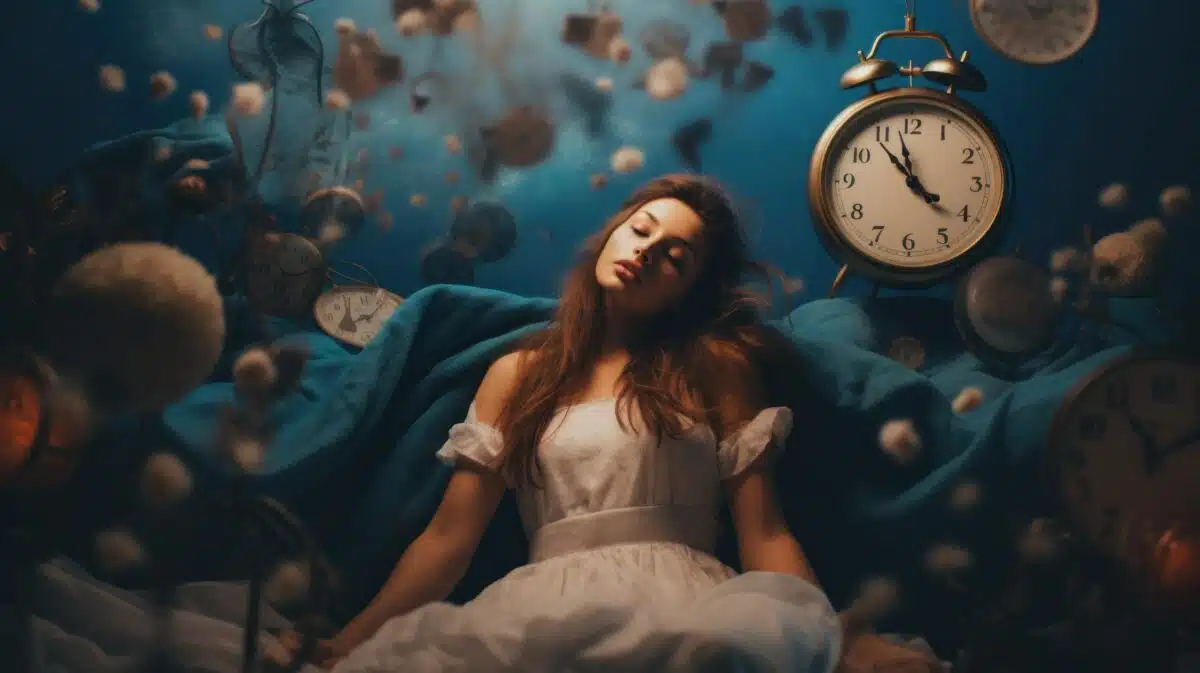
“The Melancholy Hour” by John W. Curtis
“I love the melancholy
That comes at pensive eve,
When, far from human folly,
Nor hope nor joy deceive.
I love the lonely feeling
Which comes at set of sun,
When memory backward stealing
Recalls what life has done.
I love by night to wander
In moonlight’s silver scene,
And in that scene to ponder
On things that once have been.
For then, while fancy ranges
O’er visions of the past,
I muse upon the changes
Of life that ebbs so fast.
I muse upon the gladness
That lit the eye of youth;
I muse upon the sadness
That comes with later truth.
I mourn the fading brightness
Offancy’s coloring,
And feel no more the lightness
Of spirits in their spring.
I mourn departed pleasure,
Its pure, its virtuous sense;
I mourn the lost, lost treasure
Of early innocence.
I mourn-but yet my sorrow
Is welcome unto me,
While from it I may borrow
An immortality.”
Oh! then how dear a blessing
The melancholy hour!
Each passion wild repressing,
It robs the world of power:
The world is then forsaken,
Its pomp and vanity;
And thoughts of heaven awaken
To prayer and piety.
I love the melancholy
That comes at pensive eve,
When, far from human folly,
Nor hope nor joy deceive.
I love the lonely feeling
Which comes at set of sun,
When memory, backward stealing,
Recalls what life has done.
“I Cannot Cease To Love” by Gaspar Gil Polo
If it distress thee to be loved,
Why,—as I cannot cease to love thee, —
Learn thou to bear the thought unmoved,
Till death remove me, or remove thee.
O, let me give the feelings vent,
The melancholy thoughts that fill me!
Or send thy mandate; be content
To wound my inner heart, and kill me:
If love, whose smile would fain caress thee,
If love offend, yet why reprove?
I cannot, lady, but distress thee,
Because I cannot cease to love.
If I could check the passion glowing
Within my bosom, if I could,
On other maids my love bestowing,
Give thy soul peace, sweet girl, I would.
But no! my heart cannot address thee
In aught but love! —then why reprove?
I cannot, lady, but distress thee,
Because I cannot cease to love.
From “The Siege of Pembroke” by Mrs. M. Prichard
What mean that downcast eye and pensive brow?
What melancholy thought arises now?
Her books are cast aside, and at her feet
Her lute neglected lies, whose tones so sweet
Had often, when alone within her bower,
Aided to while away the evening hour;
And tears are rising in those soft blue eyes,
But ’tis not from an aching heart they rise:
Ah no! hers are not mournful thoughts, but she
Is lost in a fond dream of memory;
A vision of a bright and joyful past,
When each hour seemed more happy than the last,
Like a long summer’s day, whose brilliant morn
Shines brightly on, with scarce a cloud to warn,
Till sets that sun, which late so fairly rose,
More glowing and more radiant at its close.

“To Melancholy” by Anne Beale
Sad Spirit, whence thy birth?
Why roam’st thou lone?
Is there no place in the halls of mirth
For thy deep tone?
Nursed in the calm of night—
Far from the festive light—
In silence born—
A solitary maid—
Wand’ring in lonely glade,
Thou shunn’st the morn.
There’s a dark- fragrant flower
Like unto thee,
That blooms alone at the midnight hour
In secrecy:
Perfumes the chilly air,
When hues more bright and fair
Are hid from view;
When the lone nightingale
Warbles her plaintive tale
‘Mid evening dew.
The light thou lovest is the moon’s pale gleam
As she seems to weep with thee,
And softly to shed her liquid beam
In silent sympathy:
For her voiceless sorrow can boast a spell
O’er thee to the world unknown,
As her gentle rays to thy spirit tell
Of hopes and pleasures flown.
“Sighs” by Hierónimo de Contreras
When hearts are sad, the remedy
That’s sweetest is to sigh.
No torment e’er oppressed the heart,
Which was not softened by the dew
Of melancholy thought,- whose smart
Is light and salutary too:
A breathed “Alas!” will oft renew
A broken link of sympathy.
O, ‘t is most sweet to sigh!
When deepest in the pensive breast
Some sacred, secret sorrow lies,
The spirit drags it from its rest
By the strong alchemy of sighs,
And tears, their natural allies:
There’s magic in a tearful eye.
O, ‘t is most sweet to sigh!
But when the wound has pierced so deep
That hope can neither cure nor cheer,
“T were better far in death to sleep
Than to live on despairing here:
But ifhe will live on, a tear
Or sigh some comfort may supply.
O, ‘ t is most sweet to sigh!
There are insufferable woes
Which must be suffered , -man – must bear
Terrors, and terror-waking throes,
Which language dares not, nor could dare,
To compass. Let his heart beware:
He may not speak, but he may die.
O, ‘t is most sweet to sigh!
“The Nightingale” by Estévan Manuel De Villegas
I have seen a nightingale,
On a sprig of thyme, bewail,
Seeing the dear nest, which was
Hers alone, borne off, alas!
By a laborer. I heard,
For this outrage, the poor bird
Say a thousand mournful things
To the wind, which, on its wings,
From her to the guardian sky,
Bore her melancholy cry,
As if her fond heart would break:
One while, in a sad, sweet note,
Gurgled from her straining throat,
She enforced her piteous tale ,
Mournful prayer, and plaintive wail;
One while, with the shrill dispute
Quite outwearied, she was mute;
Then afresh for her dear brood
Her harmonious shrieks renewed.
Now she winged it round and round;
Now she skimmed along the ground;
Now, from bough to bough, in haste,
The delighted robber chased,
And, alighting in his path,-
Seemed to say, ‘ twixt grief and wrath,
“Give me back, fierce rustic rude,
Give me back my pretty brood!”
And I saw the rustic still
Answered, “That I never will!”

“Lines. To A Friend In Answer To A Melancholy Letter” by Samuel Taylor Coleridge
Away, those cloudy looks, that labouring sigh,
The peevish offspring of a sickly hour!
Nor meanlythus complain of Fortune’s power,
When the blind gamester throws a luckless die.
Yon setting sun flashes a mournful gleam
Behind those broken clouds, his stormy train:
To-morrow shall the many-coloured main
In brightness roll beneath his orient beam!
Wild, as the autumnal gust, the hand of Time
Flies o’er his mystic lyre : in shadowy dance
The alternate groups of Joy and Grief advance
Responsive to his varying strains sublime!
Bears on its wing each hour a load of Fate;
The swain, who, lulled by Seine’s mild murmurs, led
His weary oxen to their nightly shed,
To-day may rule a tempest-troubled State.
Nor shall not Fortune with a vengeful smile
Survey the sanguinary despot’s might,
And haply hurl the pageant from his height
Unwept to wander in some savage isle.
There shiv’ring sad beneath the tempest’s frown
Round his tired limbs to wrap the purple vest;
And mixed with nails and beads, an equal jest!
Barter for food the jewels of his crown.
“Eliza, On Her Marriage” by Rev. Samuel Badcock
Ah! never-never will thy beauteous eye
Again illume this dark and cheerless mind?
Must every fond idea fly,
And mix with shades of night;
Nor e’er again this bosom find
To gild with its delusive light,
And chase the thickening gloom of melancholy?
Farewell, romantic scenes of Arcady !
And all that Poets sing of fairy land
By the mild breath of zephyr fann’d,
Farewell! -capricious fate to me denies
The eager joy, the mute surprize,
The nameless, but delicious melodies,
That borrow’d all their charms from love and thee,
Dear Harmonist of moral minstrelsy!
Which struck the thrilling chords within,
Giving “the music of the spheres,”
Extatic, though serene,
The gentle breathings of angelic airs;
And made the trembling HEART-thy LYRE,
Now soothe to sweet repose, now wake to soft desire.
From “Ode To Melancholy” by Mr. Hole
Hail, melancholy! whom of yore
To Grief wild-tressed Fancy bore.
From him ‘ tis thine with downcast eyes,
While swells thy breast with secret sighs,
To muse and melt at others woe:
Yet so to mourn let none repine;
For pleasing are such tears as thine,
Tears, that from virtuous feelings flow.
From her ’twas given, with active mind,
To roam creation unconfin’d,
And paint, as to thy view they rise,
Ideal scenes (to vulgar eyes
But dimly-imag’d or unknown)
To form, combine, and make them all thy own.
Sweet matron of the pensive brow!
Mysterious power! to thee I bow,
Whose charms a mournful joy impart,
That thrills my soul, and melts my heart.
I am thy slave, yet would not freedom gain;
I feel thy magic bonds, yet glory in my chain.

“Sunset, By the Sea, Near a Fort” by Young lady
What mellow softness o’er the landscape steals!
How sweet the breeze comes o’er the curling wave!
The sun’s last ray the golden cloud reveals,
Proud of the tinge its setting radiance gave.
Now in the distance gleams the whiten’d sail,
Which lightly skims upon the blue expanse;
And as the canvass feels the gentle gale,
The buoyant barks upon the blue waves dance.
Sweet to the list’ning ear the sentry’s tread,
The dashing wave upon the sounding shore,
The moon’s bright beam upon its rip’ling bed,
Now gently parted by the measur’d oar.
And hark ! how sweetly soft upon the breeze
The mellow horn’s rich music floats along,
Now sweetly aided by the murm’ring trees,
Now lost in distance, now more near, more strong!
Sweet combination of romantic sounds,
Ye steal so lovely o’er the ravish’d ear,
That while delight the throbbing heart surrounds,
It finds its only language is a tear.
Yet ah! that tear, what does it not express?
Ah! who would change it for the power to speak?
No, not for worlds I’d feel the anguish less,
For brighter joys I would not wish to seek.
Sweet melancholy through the bosom steals,
And seems to banish every sorrow there;
Fond, faithful mem’ry former bliss reveals,
And lulls to calm repose e’en sad despair.
Such is the power of music o’er the mind,
When aided by the tranquil hour of eve,
It bids each aching bosom be resign’d,
It sweetly whispers ” thou shalt cease to grieve.”
The strain is o’er, -th’ enchantment fades away,
Again to earth the mind is rudely torn;
‘Tis thus our pleasures quickly all decay,
Children of sorrow, only born to mourn!
